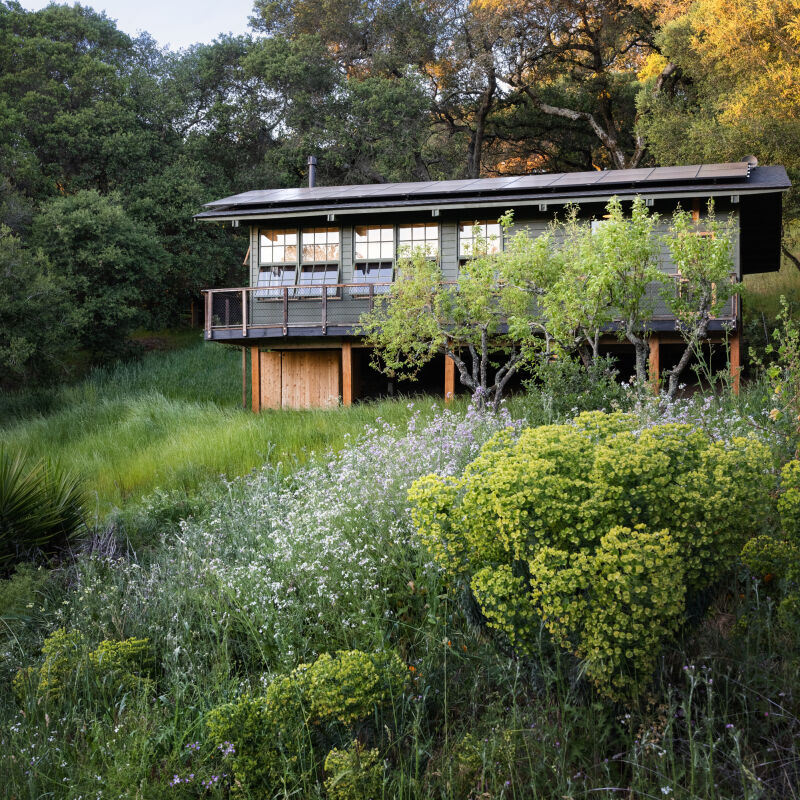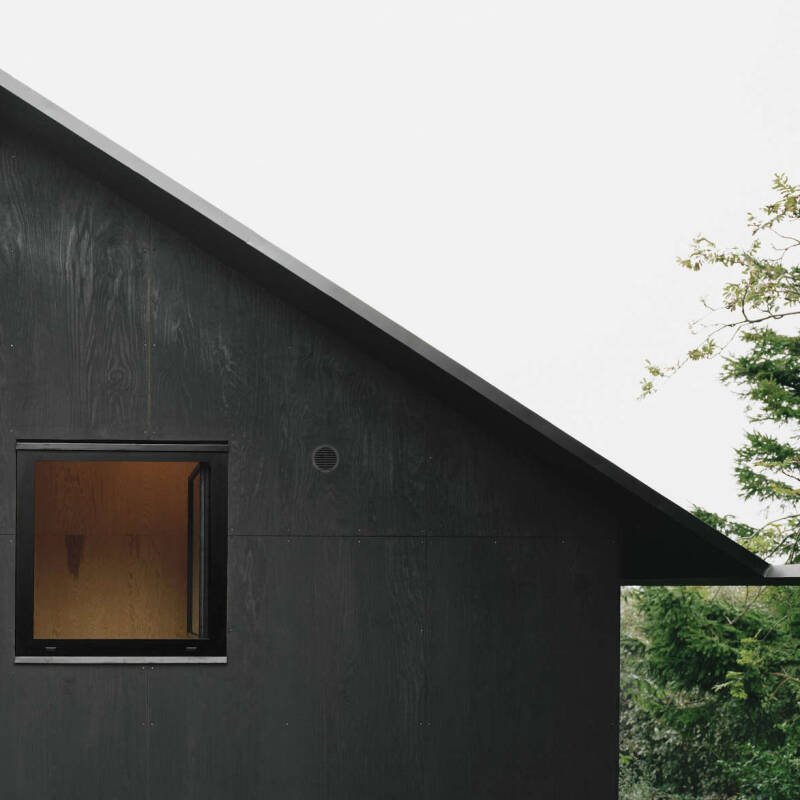- Heat pumps are on everyone’s tongues these days. But how do they work, and what’s all the fuss about? They’re environmentally friendly, super efficient—and not just for winter, either. Read on.
What is a heat pump?
A heat pump is part of a home’s heating and cooling system. Unlike furnaces, which burn fossil fuels to generate heat, heat pumps are powered by electricity and move heat from one place to another using a refrigerant, making them a more environmentally friendly option. They basically function as a two-way air conditioner: In cooler months, a heat pump pulls warm air from the outdoors into the home; in warmer months it removes heat from the air to cool the home.
What types of heat pumps are available?
The three main types of ducted heat pumps are air-to-air, water source, and geothermal, which collect heat from the air, water, or ground outside of a home, respectively, to be transferred inside. Air-source heat pumps, which can be ducted or ductless, transfer heat between your house and the outside air and are the most common as well as the most adaptable to existing HVAC systems.

What are the advantages of using a heat pump?
Having one heating and cooling system means you only have one maintenance plan to keep up with. A heat pump’s heating and cooling processes are highly energy efficient—using approximately half as much energy than other electric heating systems, such as furnaces and baseboard heaters—and provide two to five times more heating energy than the electricity it uses, on average. They are also better at dehumidifying than standard central air conditioning systems, which results in reduced energy usage and cooler indoor air during warm months.
If you live in a state with an energy grid that’s increasingly reliant on renewable sources like wind, solar, bioenergy, and hydroelectric, an electric heat pump will emit less carbon than other heating and cooling systems. Additionally, while heat pumps are highly adaptable to existing HVAC systems, you don’t always need ducts; ductless styles can be installed in any room, eliminating cold spots throughout your home. A hybrid system can contain both ducted and ductless units.
How do you select the right heat pump for your home?
Selecting a heat pump will depend on a number of factors, including the type of home you live in, the local climate, and your state’s incentive programs. After doing basic research to understand the different types of heat pumps, the next best step is to find a qualified contractor who is a preferred dealer for specific manufacturers, since they’re usually the ones who will be sourcing the necessary parts. Preferred dealers have special training in a manufacturer’s product lines and access to parts and equipment; they also understand which ones will best suit the home and climate you live in and can provide manufacturer-approved services. To qualify for a preferred partnership program, contractors need to meet the manufacturer’s standards and qualifications of working with their equipment. They should also understand how windows, weatherization, and acoustics (fan noise) should be factored into the design and installation. In addition to searching the manufacturer’s site, you can ask your family, friends, and neighbors for recommendations.

Where do heat pumps work best?
While heat pumps are more common in milder climates where temperatures typically don’t fall below freezing, they can also be used in colder climates. Combining a heat pump with another type of heating system, such as a furnace, creates a dual fuel system that is more energy efficient and cost effective; when the temperatures are too low for the heat pump to work effectively, the system can use the furnace to generate heat.

What are the disadvantages of heat pumps?
The average lifespan of a heat pump is 15 years, while furnaces have an average lifespan of 20 years or more. In addition to the high upfront cost and the complexity of installation (especially for ground source models), heat pumps can have problems with low airflow and leaky ducts. Air-source heat pumps will be less efficient than ground-source heat pumps in very cold temperatures; once temperatures drop below freezing, another heat source may be required to maintain the temperature in your home. While generally quieter than typical HVAC systems, the fans and compressors of outdoor units can cause noise—something to consider during the design phase. Split-system heat pumps, which are charged in the field, can have issues with performance and efficiency if they have too much or too little refrigerant. Additionally, reliance on electricity will render a heat pump unusable during a power outage.
How much do heat pumps cost?
The cost of a heat pump depends on several factors, including the square footage of your home, the pump size, the type of unit (air-source, geothermal, or water source), and energy efficiency rating. The size of the heat pump system is contingent on the square footage of your home and how much energy is required to heat and cool it; larger systems, of course, cost more than smaller ones.
Air-source heat pumps are typically easier to install and less expensive, costing, on average, between $4,000 and $8,000. Geothermal pumps typically cost between $6,000 and $20,000. A more energy efficient system with a higher SEER (Seasonal Energy Efficiency Ratio) rating will cost more but also save you more money in the long run.
Additionally, there are many heat pump rebates and incentives to take advantage of, both at a federal and state level. Ask the manufacturer or your contractor for financing options and which rebates are available in your state.
For more eco-minded Remodeling 101 advice, see:
- Expert Advice: 10 Eco Best Practices for Home Remodeling and Building Projects from Dirty Girl Construction
- Remodeling 101: Everything You Need to Know About Passive Houses
- Expert Advice: 9 Ways to Use Lime Plaster (Hint: It’s Not Just for Walls)
Frequently asked questions
What is a heat pump?
A heat pump is a heating and cooling system that transfers heat from one location to another. It can extract heat from the air, ground, or water and use it to warm your home in winter or cool it in summer.
How does a heat pump work?
How does a heat pump work?
Heat pumps work by utilizing the principles of refrigeration. They use a compressor and refrigerant to absorb heat from the outside environment and transfer it inside your home, or vice versa, depending on the season.
What are the benefits of using a heat pump?
Heat pumps offer several advantages, including energy efficiency, cost savings on heating and cooling bills, versatility for both heating and cooling purposes, and environmental friendliness as they produce fewer greenhouse gas emissions compared to traditional heating systems.
Are heat pumps suitable for all climates?
Heat pumps are effective in a wide range of climates, but their efficiency can vary. They work best in moderate to mild climates where the temperature doesn't regularly drop below freezing. However, there are also models specifically designed for colder climates.
Can a heat pump replace my existing heating and cooling system?
Yes, heat pumps can replace traditional HVAC systems like furnaces and air conditioners. They provide both heating and cooling capabilities in a single unit, making them a versatile option for many homes.
How energy-efficient are heat pumps?
Heat pumps are known for their energy efficiency. They can provide up to four times the amount of energy they consume, making them highly efficient compared to other heating and cooling systems. This efficiency can lead to significant energy savings over time.
Do heat pumps require a lot of maintenance?
Heat pumps generally require minimal maintenance. Regularly changing air filters, keeping the outdoor unit clean, and scheduling professional maintenance once or twice a year are typically sufficient to keep them running smoothly.





Have a Question or Comment About This Post?
Join the conversation